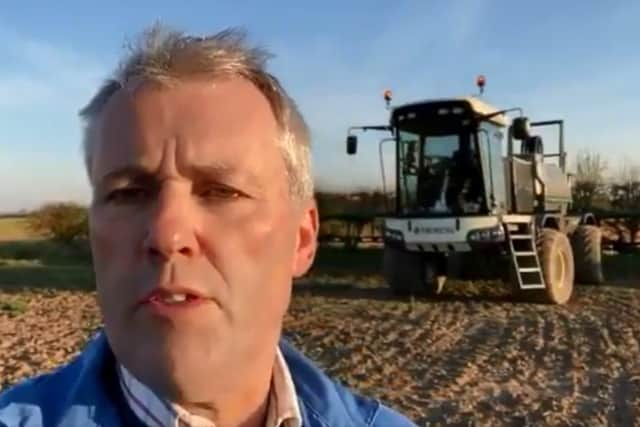Farmers face task of feeding the nation
and live on Freeview channel 276
Farmers had already suffered horrendous conditions over the autumn and winter, with persistent rain making it impossible for them to get onto the land to harvest and sow their crops. With the weather finally begining to improve, they are battling to catch up and sow their crops for the seasons ahead, knowing demand for produce due to panic-buying is peaking, along with issues obtaining seed and fertiliser, as well as finding enough staff fit to work.
Andrew Ward, of Leadenham, is a founder of Forage Aid which has helped crisis-hit livestock farmers affected by natural disasters in the UK in the past.
Advertisement
Hide AdAdvertisement
Hide AdHe said on one of his latest Twitter feed posts: “A lot of people are having to isolate at home in their towns and cities. We have had a very difficult few months, going back to last September we had roughly about four months of rain in six weeks in September and October resulting in the soils so wet that we haven’t been able to plant hardly any crops at all. So, this spring we are extremely busy - even busier than normal.”


He said: “We have to keep going and we are managing our isolation by being in a cab ,such as the sprayer I have been in. Farming has always been an isolated job, it’s been like that for generations and some people deal with it and some people don’t, but with the current virus situation which we have, isolation in a cab is probably the safest place we can be.”
Mr Ward said the farm only has a small team of three, hopping on and off different machines. “We have wipes in every cab, disposable gloves in every cab and also around the yard and we are very careful who is allowed in the yard and generally keep that to an absolute minimum because we cannot afford for the virus to come into the farm. If we weren’t able to plant, we wouldn’t have a harvest.”
After spraying the team were busy sowing spring wheat to make British bread. Due to the heavy rain until recently, Mr ward said they have to be very selective which fields to go in.
Advertisement
Hide AdAdvertisement
Hide AdHe said: “Most of our farm is clay soils which remain wetter for longer. I nearly got the sprayer stuck yesterday. Soils as wet as this won’t be planted for another week or two.”
He also drew attention to the damage to fields and crops by hare coursers driving over them illegally in the last few months.